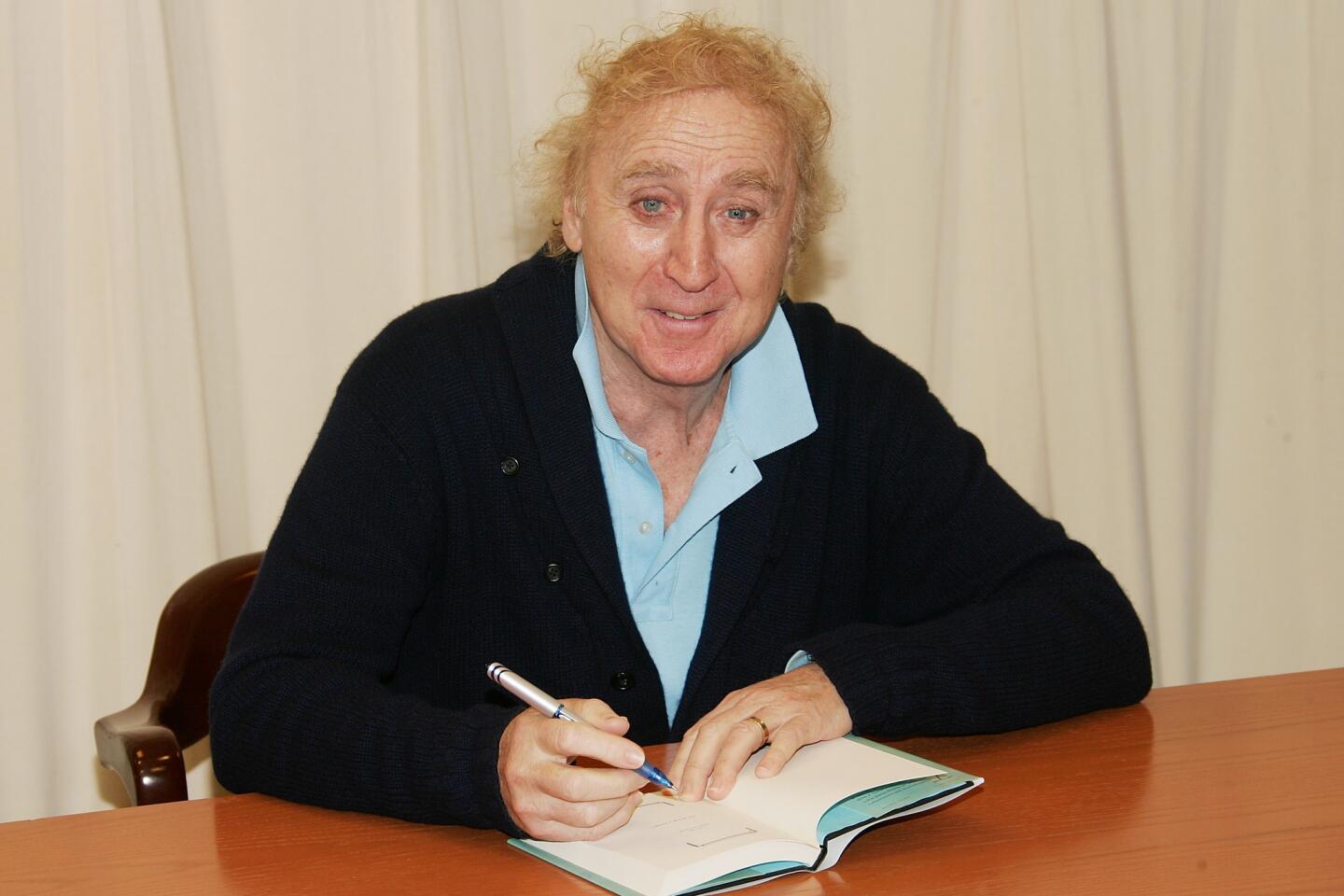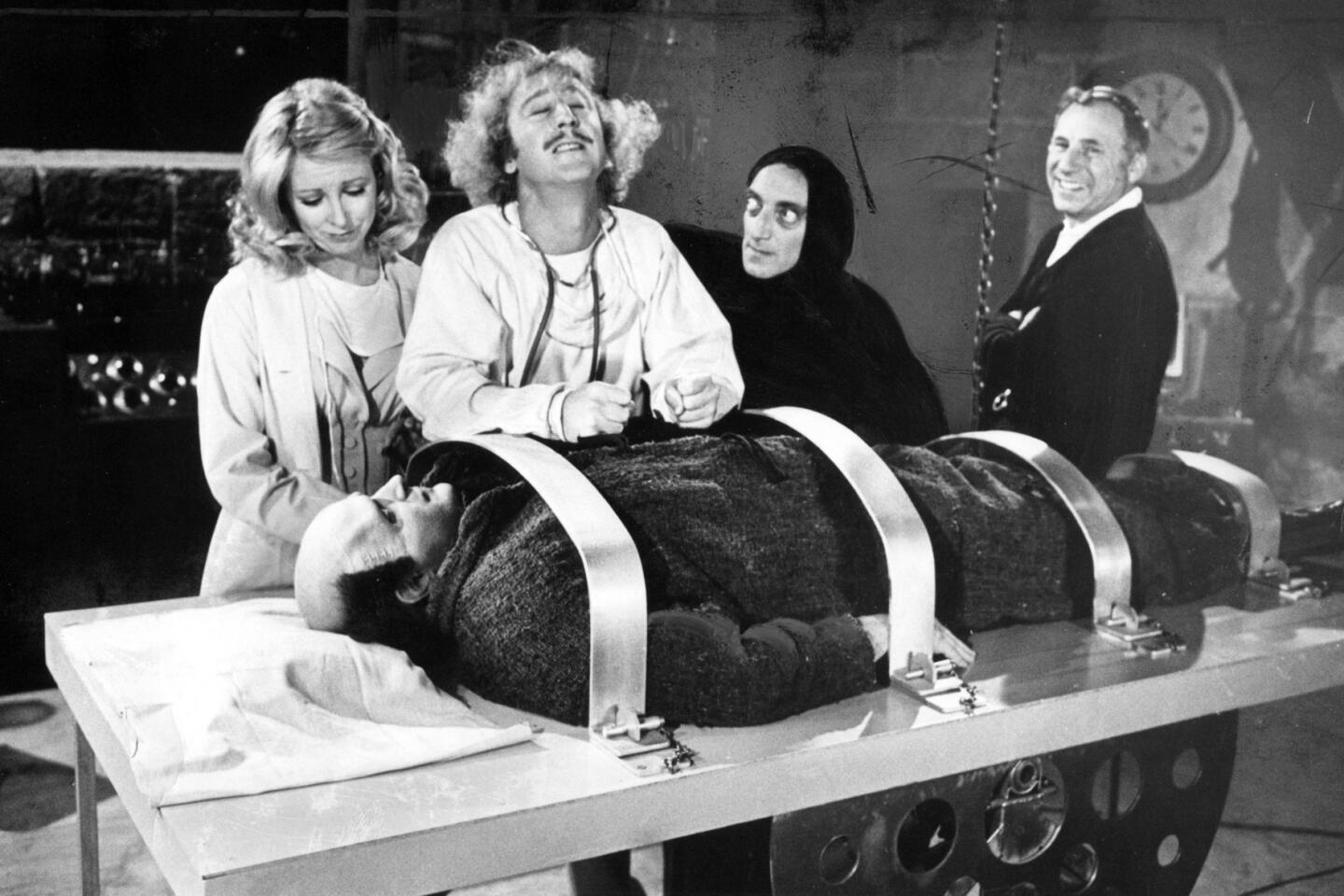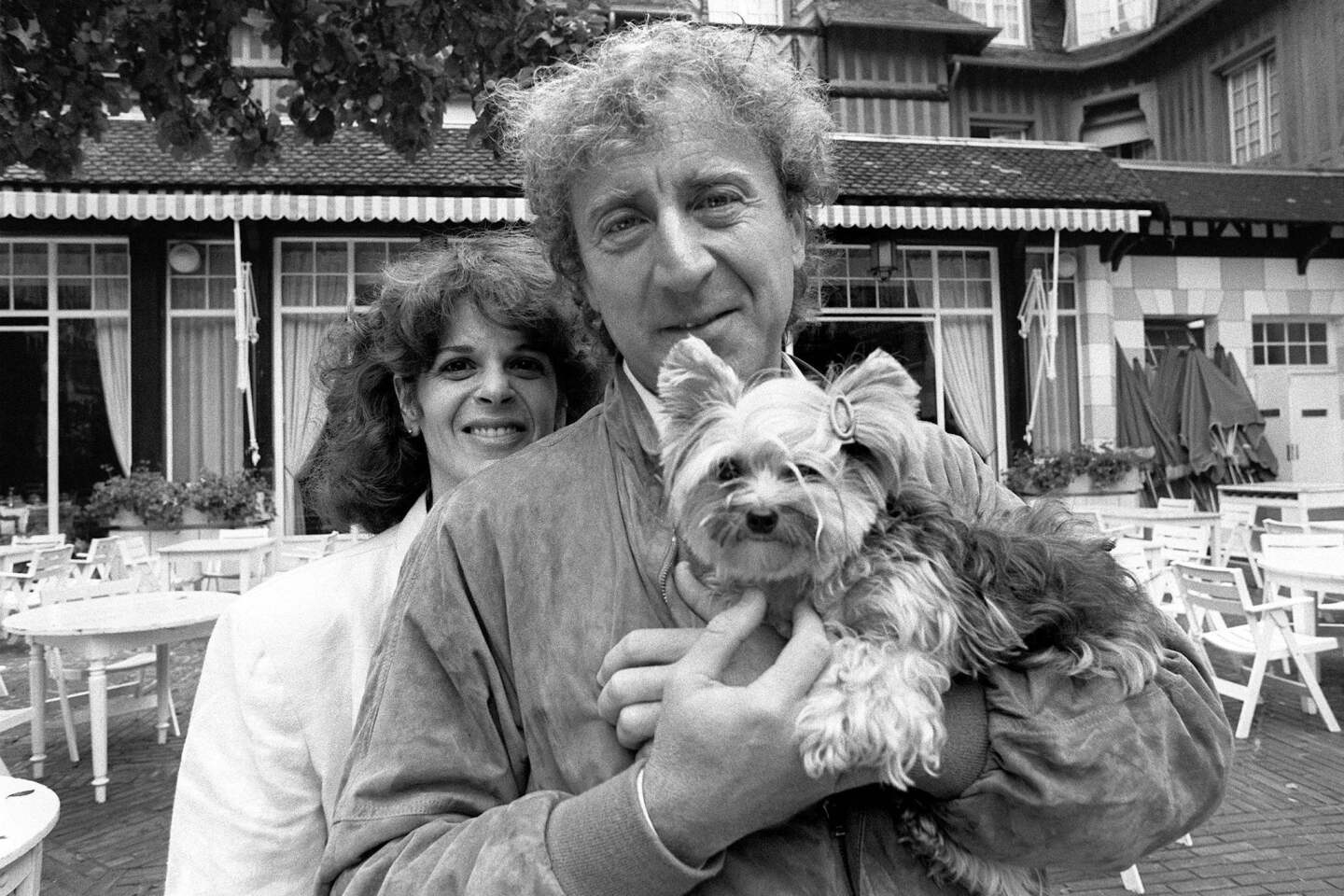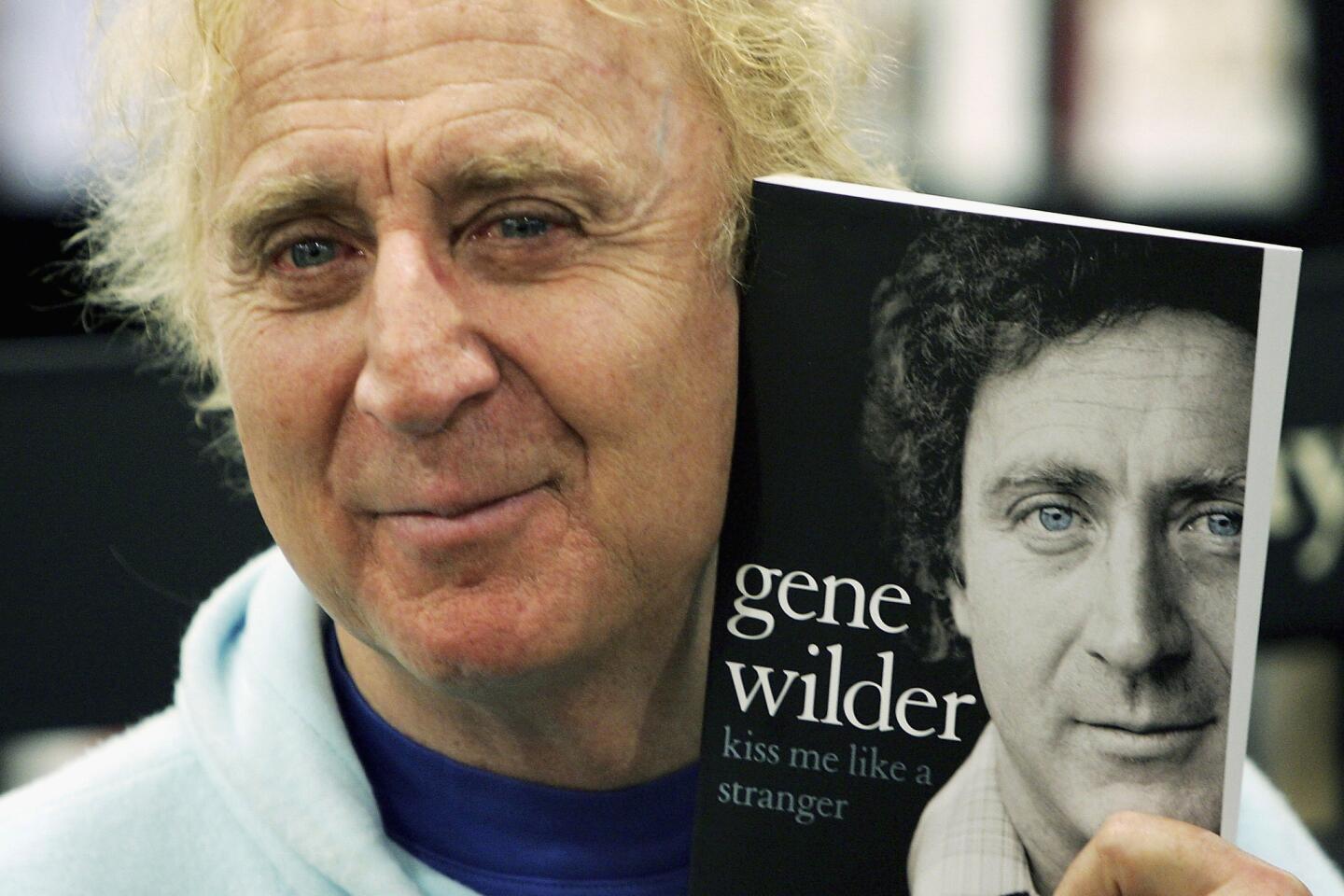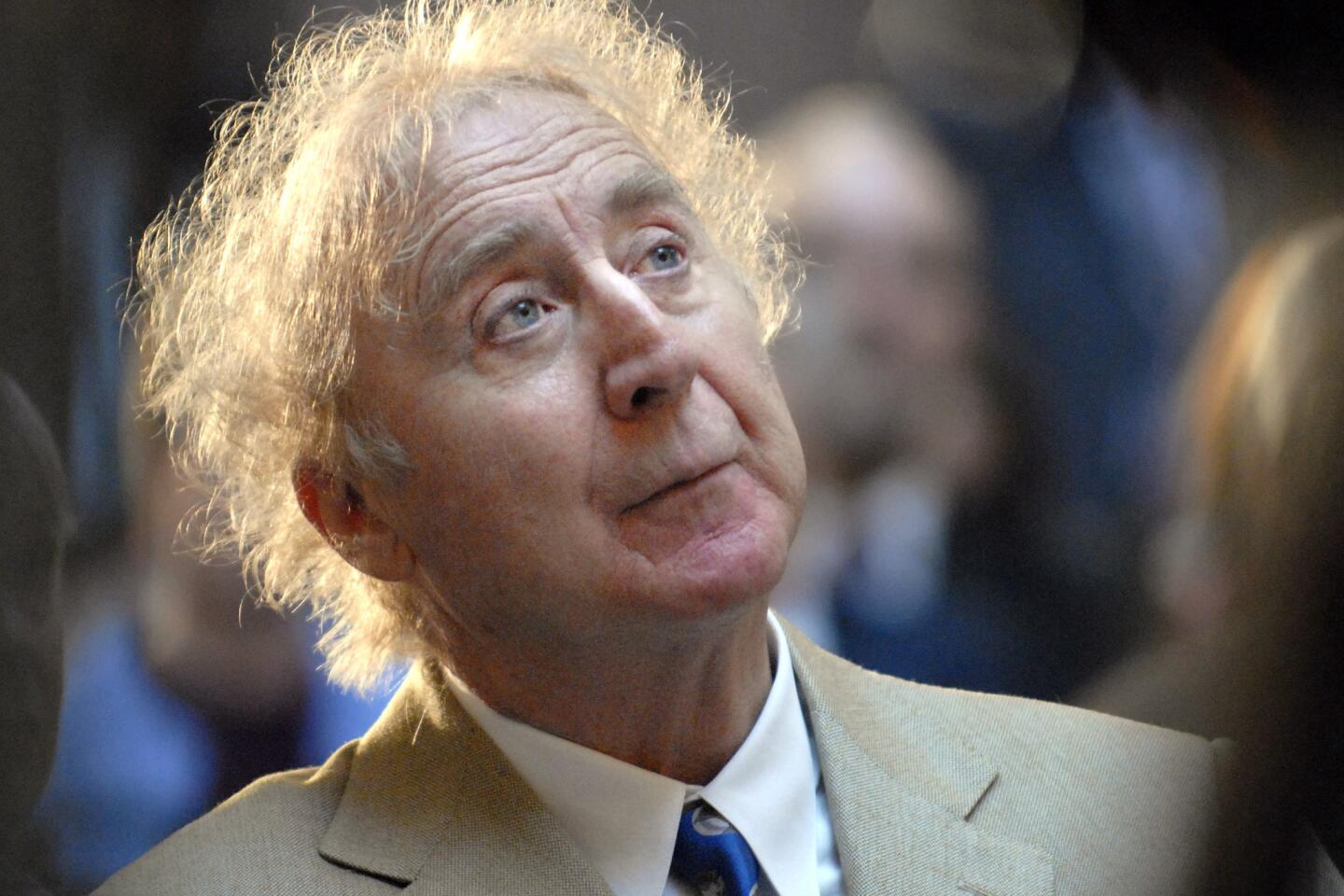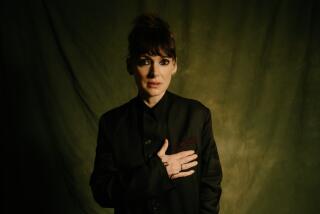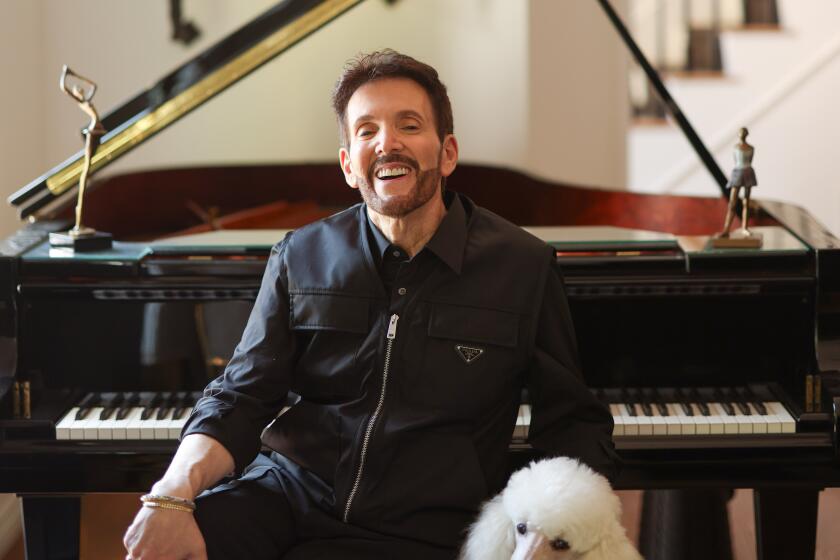From the Archives: Gene Wilder on his first turn as a romantic lead in ‘Funny About Love’
Actor Gene Wilder, known for his roles in films such as “Willy Wonka & the Chocolate Factory,” “Young Frankenstein” and “Blazing Saddles,” has died. In 1990, Wilder spoke to the Los Angeles Times about his first chance to play a romantic lead in “Funny About Love.” This article was originally published on Sept. 22, 1990.
The posters promoting Paramount Pictures’ “Funny About Love” show Gene Wilder in a wacky pose with an alarm clock and baby perched on top of his red-blond Brillo hair. The image is typical of how audiences have come to perceive the actor, best known for an endearingly guileless slapstick schtick that has defined his on-screen persona from 1968’s “The Producers” through his last film, 1989’s “See No Evil, Hear No Evil.”
However, those actually seeing the movie, which opened Friday, will find a far different Wilder than they have encountered before. In “Funny About Love,” he plays a romantic leading man, and, really going against the comedy grain, the character is not always particularly likable.
Duffy Bergman (Wilder) is a cartoonist, engulfed by adulation and awards, but lonely for love. When finally found in the character of Meg (Christine Lahti), Duffy’s frantic desire for a baby drives first an emotional, and then a physical wedge between them.
“The character is different than anything I have done before,” said Wilder, who has begun reassessing his career since the death last year of his wife, Gilda Radner. “In many of my past scripts, we just got to the humor as fast as possible. With Duffy, I could work more to create a whole character.”
Wilder says that he began rethinking his career during the making of “See No Evil, Hear No Evil” while Radner was battling ovarian cancer. “I had a lot to do with the writing of (“See No Evil, Hear No Evil”),” Wilder said, “not the plot, but some of the scenes with Richard [Pryor], when we were talking as human beings and not being chased by cars. It was gratifying to say I was talking from my center and not from some loony-tunes cardboard character.
“I was in the middle of a lot of things as far as my heart’s desire for work was concerned. I thought if I did work, I wanted to be more of a human being.”
See the most-read stories in Entertainment this hour »
Wilder said that he was surprised that Leonard Nimoy, who directed “Funny About Love,” saw this need in him too.
“I had never met him before,” Wilder said, “and I don’t know how he knew … ‘Blazing Saddles’ and ‘Young Frankenstein’ and ‘Stir Crazy’ and ‘Silver Streak.’ … How would he know to put me in this?”
Nimoy, who met Wilder at his Connecticut house to offer him the part, said, “I have seen a lot of his work. I see a very gifted person. I see an extremely intelligent person. I see a person capable of great comedy and great sensitivity. The role is that of a funny, turbulent and troubled guy, and I thought he could handle it. I think the tremendous depth he is capable of will surprise people. … He is capable of bringing great comedy out of a wellspring of deep emotion like [Charlie] Chaplin.”
Wilder said that when he met Nimoy, he asked, “Why me?” and the director answered, “Because I want the audience to forgive Duffy, and they might not forgive someone else.”
Making the film fulfilled many of Wilder’s hopes for such a project.
“The day-to-day work on the film was a constant surprise for me,” he recalled. “Surprises about myself and the emotion that would fill a scene. I wouldn’t have a clue what was going to happen sometimes and then, when it hit, it was so big that I was shocked afterward.”
Wilder continues: “I’m an alright actor. A fairly good actor. But I’m a great reactor … and I had something to react to all the time. I felt at this point in my life and in my career, my task in this film should be ‘don’t act.’ Just go with what was happening at the moment, and don’t try to work out clever things.”
If Wilder feels so comfortable with the change in his screen persona, part of his ease derives from his training as a classical actor.
Born in Milwaukee 55 years ago, Wilder began acting at 8, doing comic skits to divert his ill mother. At 13, he started private dramatic training, and while in his late teens, appeared in summer stock productions of Tennessee Williams and Arthur Miller plays. He continued with drama at the University of Iowa and later studied the physical aspects of acting — gymnastics, fencing (he became a champion fencer) and movement — at London’s Old Vic theater school before returning to New York and embarking on a stage career.
His first play was Arnold Wesker’s “Roots,” quickly followed by his Broadway debut as the comic valet in Graham Greene’s “The Complaisant Lover.”
Wilder’s first film role was that of the terrified undertaker in 1967’s “Bonnie and Clyde.” “Instead of being conventionally frightened, I put on an act of trying not to be afraid which was, I guess, amusing,” he said.
It was a year earlier, while acting with Anne Bancroft in Brecht’s “Mother Courage,” that Wilder met her husband, Mel Brooks, and eventually began a collaboration that put his career on the comedic track that made him a star. It also resulted in a number of outrageously satirical films, beginning with “The Producers,” in which he co-starred with Brooks and the late Zero Mostel.
“If it weren’t for Mel,” Wilder said with a laugh, “I’d still be doing temporary typing for a living, and selling toys at F.A.O. Schwarz for $1.40 an hour. I played with the trains all day.”
Does Wilder believe his wife’s death propelled his career in its new, more serious direction?
“Yes — but I wouldn’t be foolish enough to deny what the nature of my talent is. I don’t want to do ‘Hamlet.’ I don’t want to do Robert Redford roles or Mel Gibson roles or Kevin Costner roles because I’m not going to be good at them. I don’t want to do a tragic clown [either]. I want to do what I can lend my talents to, but I want it to be as a human being and not as a two-dimensional character.”
Wilder said of the sad times before and after his wife’s death: “I thought for a while that I wouldn’t be working anymore, and then I thought even if I wanted to, no one would ask me. Then, I found to my amazement, I suppose because of VCRs and cable, no one thought of me as gone because they saw me last week.
“I haven’t done overlapping films like this, starting one before the other has opened, in a long time,” he said of his new project.
Wilder is now at work on Peter Bogdanovich’s “Another You,” filming in New York and co-starring (again) Richard Pryor. The film, about a con-man (Pryor) and a pathological liar (Wilder) will continue the evolution of his persona. Bogdanovich said of Wilder’s part in the new film, “He’s really playing a character part in this, kind of a sad sack who is also very funny.”
Beyond this point? “I’ve come to a point now where I like not to plan, I won’t say more than a day ahead, but more than a week at a time,” Wilder said quietly.
“You never know what is going to happen. Once I say I’m going to do a movie, I do it — I’m very professional that way, but, otherwise, I don’t like to think ahead.I have no plans for films after this. I trust if your life is right, the right things will happen at the right time. If the chords are in harmony inside, I think other things will happen in the same way. That sounded highfalutin to me once, but I believe it now.”
ALSO:
Gene Wilder dies at 83; ‘Willy Wonka’ star and Mel Brooks collaborator
Why Gene Wilder gave Gilda Radner’s name to Cedars-Sinai for its cancer research program
Gene Wilder discusses his acting successes and preference for writing
A charming, witty introduction to a ‘Stranger’ a la Gene Wilder
More to Read
Only good movies
Get the Indie Focus newsletter, Mark Olsen's weekly guide to the world of cinema.
You may occasionally receive promotional content from the Los Angeles Times.
